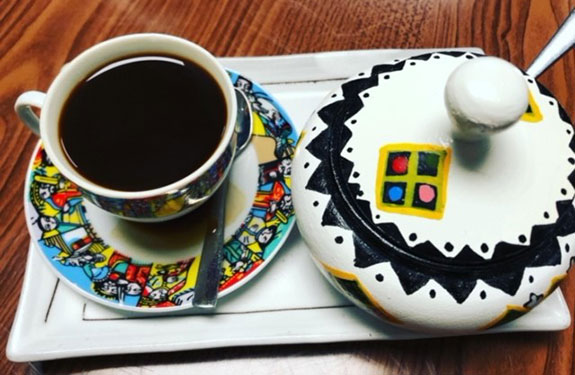Ethiopian Genna
Ethiopia is a very ancient country with a Christian heritage of more than two thousand years. Nowadays, there are many religions in Ethiopia, but the Ethiopian Coptic Orthodox Church still has a strong following. Genna is celebrated on the 7th of January by the Ethiopian Coptic Orthodox Church which uses the Julian calendar. Like in other countries, Christmas is a feast. However, there is no present except we take the children shopping for clothes before Christmas.
The Genna preparations start at least a month before. In our home country, we gather barley, Gesho (an African shrub), honey and sometimes other ingredients to brew Tej and Tella. Tella is similar to stout beer while Tej is like mead. Women stock up on spices to make berbere paste and chilli powders. Traditionally women prepare, dry, chop and grind spices for cooking, which is a lot of work. They also make kibbeh, a spiced clarified butter with spices for cooking.
A week prior to Christmas, we make a sough dough batter with Teff (a grain) and leave to ferment for a week. In the week leading to Christmas, children play Genna, traditional hockey which gives its name to the season.
On Christmas Eve, it is time to prepare the food. The fermented Teff mixture is poured onto a Mitad (hot plate) to make a thin, soft bubbly, pancake-shaped flat bread called Injera. Animals are slaughtered for fresh meat for the Christmas feast. Most Orthodox Christians attend a church service, from 6 pm Christmas Eve to 3 am Christmas Day. Ethiopians wear traditional dress to Church, which for women is a white cotton dress with a white scarf or shawl to cover their hair while at church. Men wear long white traditional shirt and trousers with a white Gabi, a thick cotton woven cloth worn over the shoulders and torso. The traditional Ethiopian colours of green, yellow, and red can often be seen at the edges of the clothes.
Orthodox Christians fast for the 43 days leading up to Christmas where they abstain from meat and dairy. As soon as people return home from Christmas Church Service, it is time to wake up the household and break the fast with injera, eaten with doro wat (a spicy chicken curry with eggs), kitfo (similar to steak tartare), roast meat, ibe (similar to cottage cheese), dulte (liver, kidney, and tripe), and other delicious savoury dishes. Ethiopian food is eaten from a shared tray scooping up the curry with your fingers and the injera. We do not use cutlery! Later during the day, families pay each other visits and there is always more than enough food for everyone.
After eating, we all gather around a small charcoal burner surrounded by long freshly cut grass spread on the floor, incense, and bowls of popcorn. A lady sitting on a stool roasts raw coffee beans in a pan over the burner then grinds and simmers them in a Jebena flask with hot water. We all drink at least three rounds of small cups of strong black coffee. We also drink the Tella and Tej and chat till nighttime. Genna lasts the next couple of weeks while we visit all our friends and relatives.
Etetu Bowden, Amharic Interpreter
